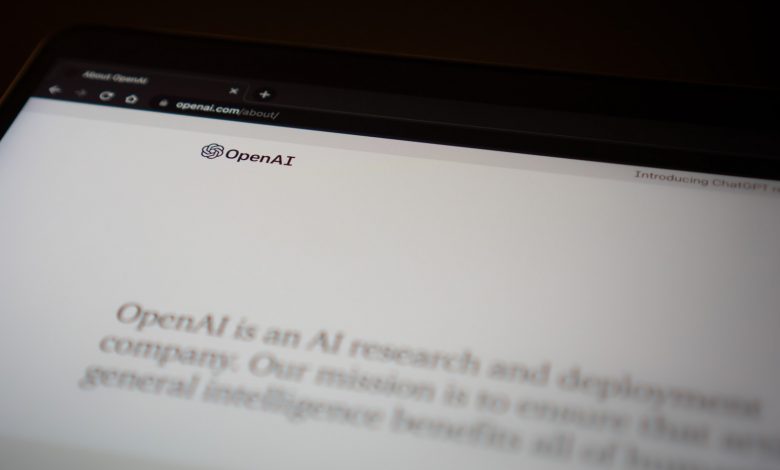
Table of Contents
Microsoft Acquires Talent from OpenAI
In a notable industry move, Microsoft has strengthened its AI operating team by onboarding two high-profile executives directly from OpenAI, the artificial intelligence research laboratory famous for developing the advanced AI chatbot ChatGPT. This strategic talent acquisition reflects Microsoft's deepening interest and investment in the field of artificial intelligence, a sector that has seen exponential growth and groundbreaking advancements in recent years.
Two Executives Join Microsoft
The two individuals joining Microsoft come with a wealth of experience and expertise that could significantly contribute to Microsoft's AI capabilities. These hires showcase Microsoft's commitment to embedding AI technology into its suite of products and services. The specific roles and responsibilities these former OpenAI executives will take on at Microsoft have not been fully detailed publicly yet, but the tech community widely anticipates that their influence will be instrumental in shaping the direction of Microsoft's AI endeavors.
One Executive Was Recently Terminated by OpenAI
Stirring up the industry, one of the executives in question recently made headlines due to an abrupt termination from OpenAI. This surprising development came amid what was described as a weekend filled with drama and has since sparked a flurry of speculation regarding the potential implications for OpenAI's future projects and partnerships. Despite the circumstances surrounding the departure, this individual's expertise is undeniably valuable in the competitive AI industry, and their recruitment by Microsoft indicates a calculated move to capitalize on their knowledge and experience.
The transitions and changes within top-tier AI companies such as OpenAI and the corresponding moves by industry giants like Microsoft underscore the intense competition and dynamic nature of the AI sector. As companies continue to vie for top talent, these shifts are of considerable interest to industry observers, analysts, and stakeholders, who are keenly observing how these changes will influence the direction of AI research and product development.
OpenAI Undergoes Changes
Recent events have placed OpenAI, a preeminent AI research company, at the center of a significant internal upheaval. Over a tumultuous weekend, the firm experienced dramatic occurrences, which have sparked widespread speculation regarding the future of its leadership and overall company structure. The upheaval has led to the publicized dismissal of one its key executives and has initiated broader conversations about the stability and direction of the organization moving forward.
A Weekend Filled with Dramatic Events
The weekend in question saw OpenAI's atmosphere charged with unexpected announcements and internal disagreements that reached the public eye. According to reports, a proposal for a new venture by one of the terminated executives led to a collective posture of dissent among OpenAI employees. The nature and rapid development of these events suggest a possible dissonance between the company's management and its staff, resulting in unanticipated organizational challenges and an uncertain path ahead for the firm. This ultimately culminated in a considerable number of OpenAI employees threatening to resign their positions.
Speculations on Company Restructuring
In the wake of these developments, there has been much speculation about the potential restructuring of OpenAI. With reports circulating of an ultimatum issued by a significant portion of the OpenAI workforce, demanding leadership changes and threatening collective resignation in the absence of compliance with their terms, the company is currently at a crossroads. Whether or not the board will acquiesce to the demands is yet to be determined, but the situation signifies a moment of critical reflection and decision-making for the future governance and strategic alignment of OpenAI.
As a direct result of these internal conflicts, Microsoft, a key investor and partner in OpenAI, has strategically positioned itself as a sanctuary for the potentially outgoing talent, announcing the creation of a subsidiary which promises to welcome any OpenAI employees who opt to transition. This move could potentially establish Microsoft as not just a collaborator, but rather as a formidable rival in the AI industry, further intensifying the competitive landscape.
Impact on OpenAI
The recent events at OpenAI have caused significant ripples throughout the organization, raising questions about its internal dynamics and overarching leadership structure. With a sizeable contingent of employees considering resignation, the company could face substantial shifts in its operational capacity and strategic outlook. The internal turmoil has caught the attention of the industry, given OpenAI's status as a frontrunner in the burgeoning AI landscape, and created a sense of uncertainty about how the organization will navigate through these challenging times.
Potential Shake-Up in Company Dynamics
The potential exodus of a large number of OpenAI employees indicates more than just discontent; it signals a potential shake-up in how the company functions at its core. Should the employees follow through on their threat to leave, the resulting transformation could impact various aspects of the company, from research and development to day-to-day operations and long-term innovation pipelines. The power dynamic within OpenAI seems to be at a pivot, with calls for a new independent leadership pointing to a desire for a significant shift in the company’s governance.
Uncertain Future Following Executive Departure
The departure of Sam Altman, and the reactions it precipitated, have cast a cloud of uncertainty over OpenAI's future. As a result, the company's direction and capabilities may be reevaluated under pressure from both internal and external stakeholders. The severance of ties with Microsoft, beyond investments and collaborative efforts, might now be seen in a new light, as Microsoft has swiftly moved to harness the talent and leadership once nested within OpenAI's ranks. The ripple effect of these developments could influence the strategic decisions and innovation trajectory of OpenAI for years to come.
The gravity of the situation is underscored by the potential creation of a Microsoft-run subsidiary that could vanish OpenAI’s competitive advantage by absorbing its discontented workforce. The proposition amplifies the degree of vulnerability currently facing OpenAI, leaving the AI community pondering the future stance of what was once the single most recognizable name in the AI industry. As a consequence, OpenAI finds itself at a critical juncture, one that will likely define its position in the market and its influence on AI development moving forward.
Community Speculations
The recent internal upheaval within OpenAI and the direct poaching of its talent by Microsoft come at a particularly critical time for the organization, as it recently unveiled GPT-4, the latest generation of its language model technology. The tech community and AI enthusiasts are engaged in fervent discussions, speculating on the potential repercussions these events may have on the future of OpenAI’s projects, including the iterations and improvements of ChatGPT and other key initiatives.
Discussion on Repercussions for OpenAI’s Projects
With much of OpenAI’s workforce threatening to resign and Microsoft potentially positioning itself as a direct competitor, there are growing concerns about the impact these changes might have on the progression and enhancement of OpenAI's projects. The influence of key executives and researchers who have been integral in advancing the company's AI technology cannot be understated. Their departure could imply a redistribution of expertise that may slow or redirect the pace at which OpenAI’s initiatives evolve. Additionally, there is curiosity about how the launch of new projects like GPT-4 could be affected, with speculations rising in AI circles about potential delays or shifts in project priorities.
ChatGPT’s Direction Under Questioning
The direction of OpenAI's flagship chatbot, ChatGPT, is especially under the microscope after the staff shake-up. As a standout tool that has gained significant attention and praise across various sectors, ChatGPT's roadmap may be scrutinized for any signs of deviation from its expected trajectory. Stakeholders are questioning how the company will maintain the innovation momentum and whether the potential founding of a new venture led by the former OpenAI executives will introduce a competing product that could challenge the prominence of ChatGPT. The AI community is on alert, watching for both the immediate and long-term effects these shifts will have on the quality, capability, and application of advancements like GPT-4, which are poised to redefine the capabilities of AI chatbots.
These speculations only intensify the spotlight on OpenAI, as the industry awaits clarity on the organization’s stability and the continuity of its groundbreaking work in AI. Industry observers, developers, and businesses that use or intend to use OpenAI’s technologies are particularly keen on understanding the potential changes to the pipeline of innovation that has thus far fueled the rapid growth of artificial intelligence applications.




